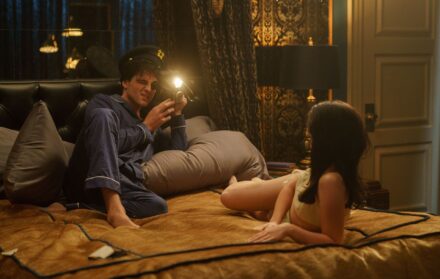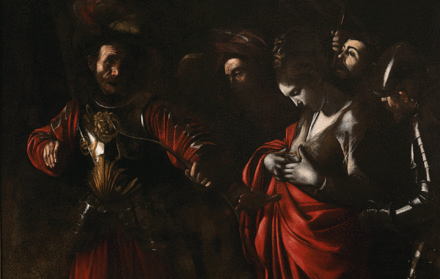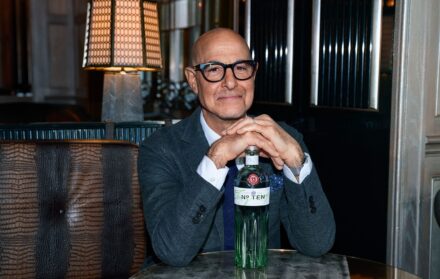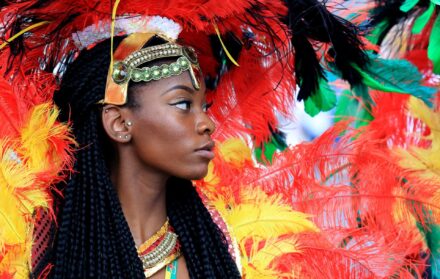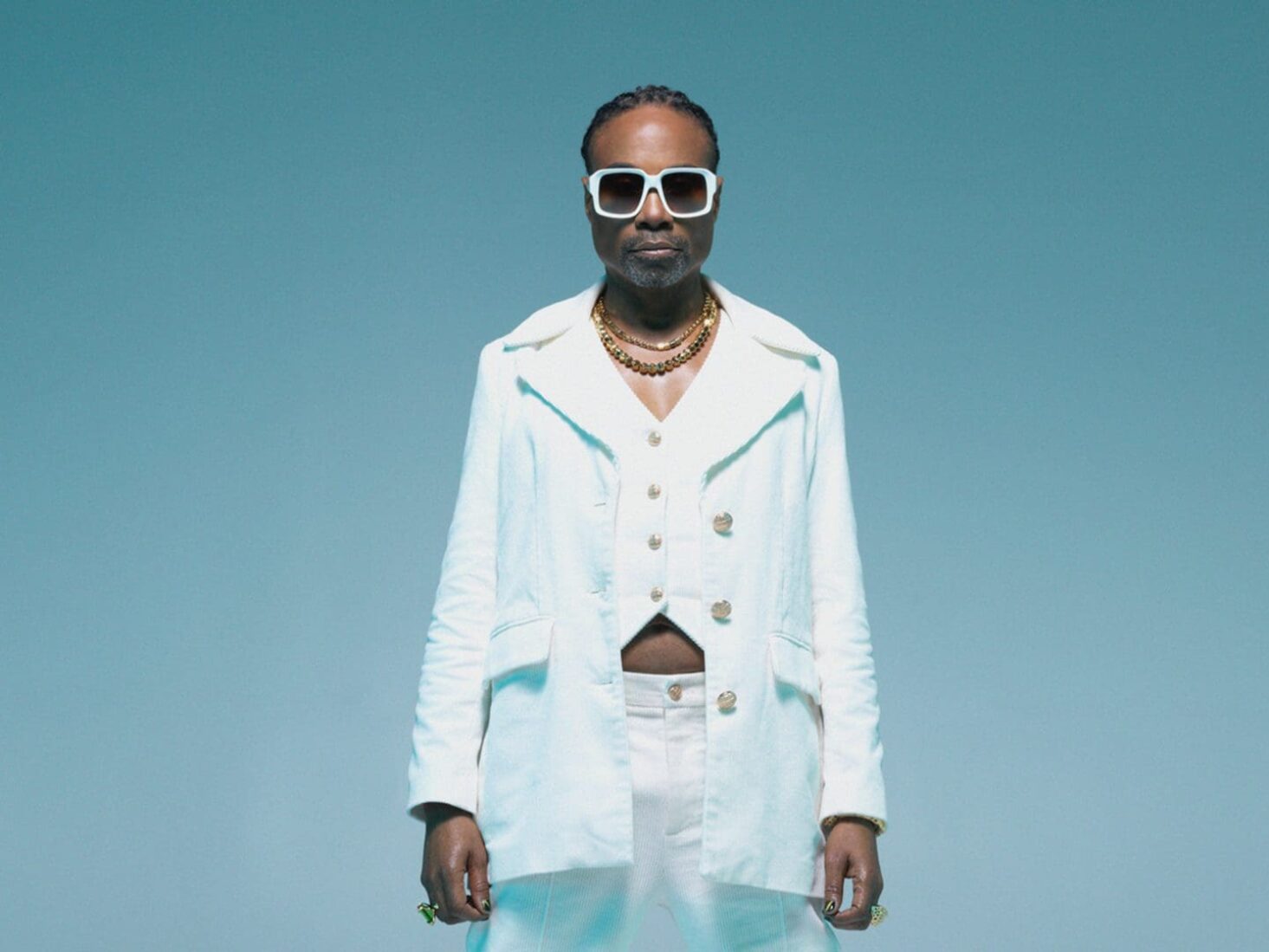
Billy Porter: “I’m back on my own terms and it’s magical”
With a new, highly-personal album about to drop, the actor-singer-producer-fashion-designer is putting himself out there like never before
When Billy Porter released his self-titled R&B album in 1997 he was told that his queerness would be a liability – and, for a long time, it was.
“The doors were slammed in my face,” says the Pittsburgh-born 53-year-old. “The roles were non-existent and [the opportunity] to be respected as a three-dimensional, rounded human being did not exist for my black queer self. That was hard. My wings were clipped because my queerness was not okay and I was not welcome.”
In response, the American performer, who graduated from Pittsburgh’s Carnegie Mellon University with a BA in Drama before studying screenwriting at UCLA, found other creative mediums through which to express himself – namely, through acting and musical theatre. Having trodden the Broadway boards in Grease, Jesus Christ Superstar and Dreamgirls, in 2013 Porter would win a Tony Award for his portrayal of Lola in Kinky Boots, before winning a Grammy for the same musical the following year.
Now, 25 years after his first studio album, Porter is staging a return to mainstream music and to an industry that, today, purports to embrace his eccentric, no-holds-bar queerness.
“They kicked my black f****t ass out and now they want me back in,” says Porter, who in July of this year announced he’d split from his husband of seven years, Adam Smith. “There were some people in the mainstream record industry that remembered me and said, ‘Be that queer thing you were trying to be in the ’90s – we can do that now.’ Well, I’m back on my own terms – and it is magical.”
Just as the music industry has changed, so too has Porter. The rhythm-and-blues Broadway sound of his first three solo albums – Billy Porter (1997), At the Corner of Broadway + Soul (2005), Billy’s Back on Broadway (2014) – has been replaced by dance and disco anthems; a genre with added significance for Porter, who came out aged 16 in the midst of the 1980s AIDS crisis; a time when clubs and discos provided a safe space for the queer community.
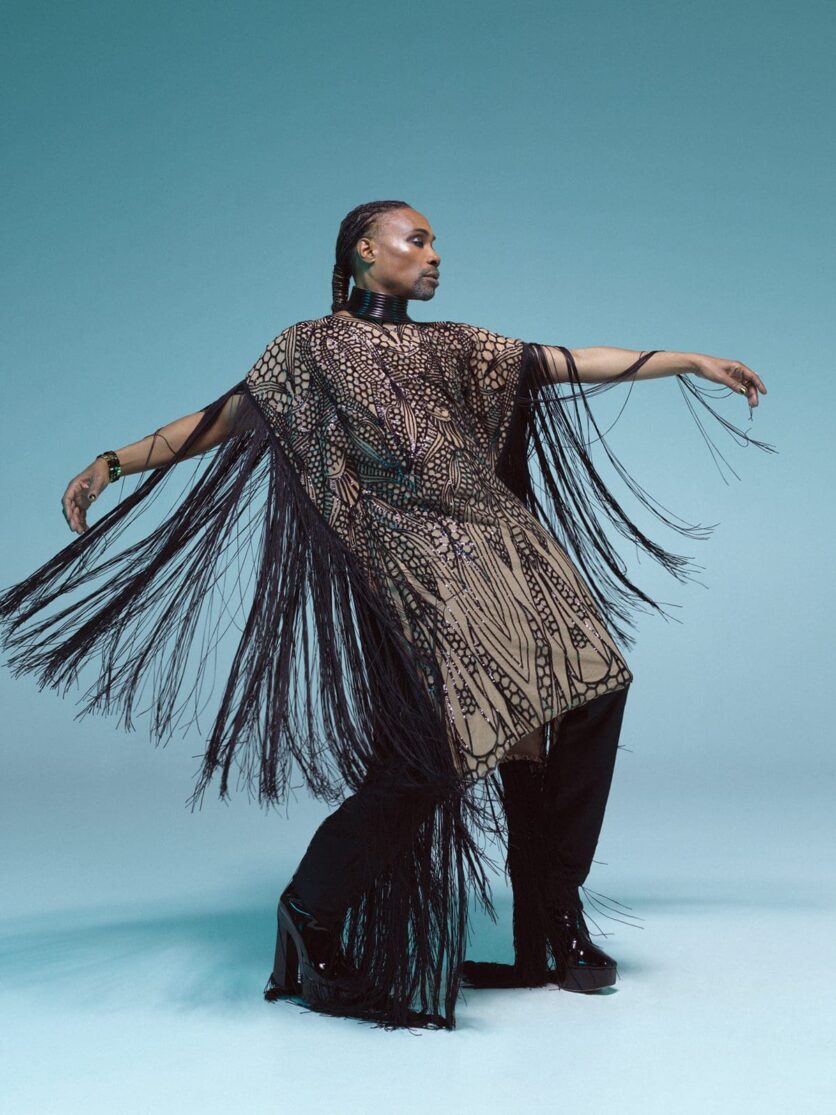
“We went straight to the frontlines to fight for our lives,” says Porter. “The place where we felt seen and heard, where we found fellowship, was in the clubs.” It is his experience of disco in the ’80s that provided the inspiration behind Porter’s upcoming fourth solo album Black Mona Lisa, which is slated to be released in January 2024.
“Back then, we went to the clubs on the weekends and we recharged so that we could go back out into the world and fight. I wanted to honour my people. I wanted to honour my journey, what saved me and what helped me heal. It was very healing to go to these spaces.”
Refreshingly outspoken about his experiences as an LGBT+ actor and musician, Porter has never been one to hide his queerness, putting it front and centre in headline-grabbing red-carpet looks – many of which he designed himself – that have paved the way for male style icons, including the likes of Lil Nas X and Donald Glover.
It takes, after all, a special kind of fabulous to dress as an Egyptian god and have six topless models carry you into the Met Gala. That was in 2019; the following year Porter was included on Time magazine’s list of the 100 most influential people in the world.
The flip side of being so candid, so outré, is that Porter has been on the receiving end of much of the resurgent backlash to queer art, something in which he sees similarities to the attacks he witnessed in the ’90s. “It’s the same thing as it has always been, vilifying the other and vilifying the thing you don’t understand. It’s the circle of life. History repeats itself and those who don’t know their history are doomed to repeat it.”
That vitriol, says Porter, the first openly gay black man to win a lead acting award at the Emmys (for Pose in 2019), is different this time around because the “change has already happened”.
“You can’t put the toothpaste back in the tube. In 1997, I was not possible, and despite everything that’s going on right now and all the pushback, I’m possible and I’m here. Winners write the history and, baby, I win. I’m here and I’m not going anywhere.”
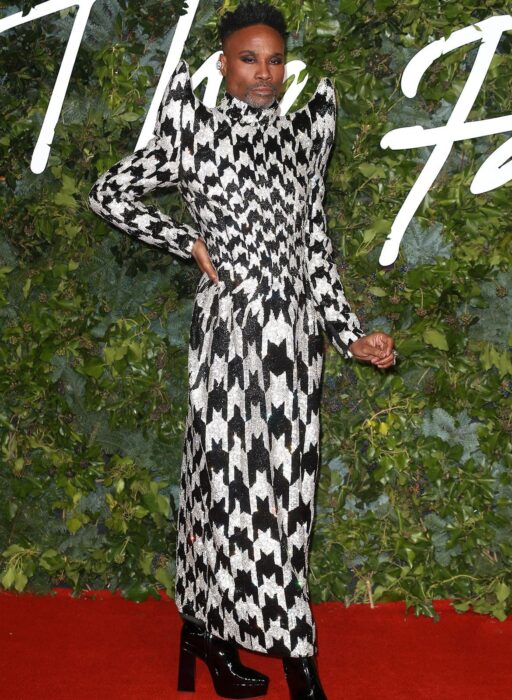
Porter at The Fashion Awards in London, 2021. Image: Shutterstock/Fred Duval
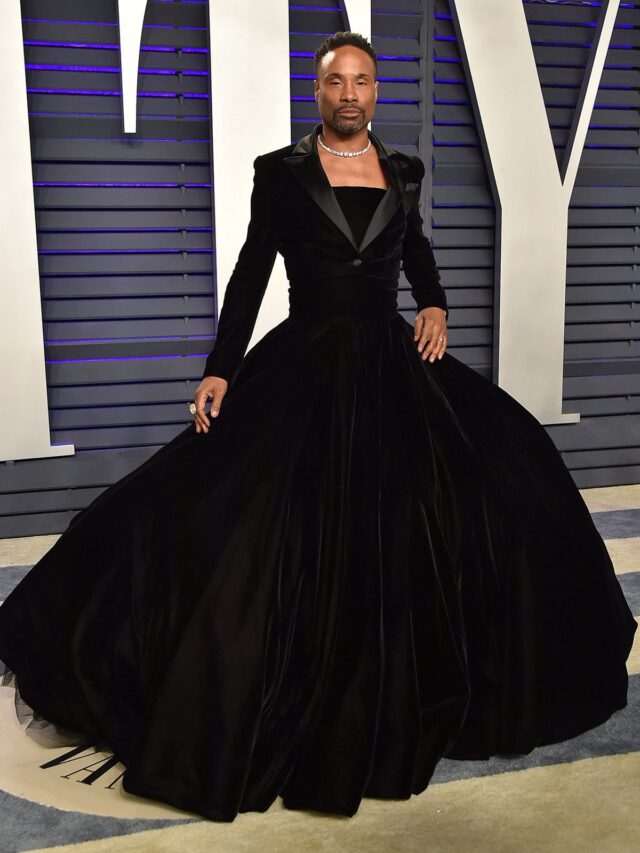
Porter at the Vanity Fair Oscars Party in 2019. Image: Shutterstock/DFree
Porter’s most recent musical output, the ear-wormy dance anthems Broke a Sweat and Baby was a Dancer, are songs intended to be performed live. They are, says Porter, songs that truly represent who he is as a performer and artist. The upcoming album, and his comeback in general, is also about joining artists like Beyoncé in putting dance music – which Porter believes has been relegated and dismissed for decades – back on the map.
“I want to be part of honouring the genre and putting it back into the zeitgeist in the way that it should be respected and honoured and enjoyed. The music is healing; the music is celebratory; the music is really powerful.”
Porter describes Black Mona Lisa as “the greatest musical account of my artistry and my creativity”. “It’s all the things I am. It’s all of the influences. The music shapeshifts – it’s all different genres and it’s all different styles. The defining factor is me. I’ve lived all of these things so I can talk about all of them from a place of experience. Having really experienced life and continuing to experience life and being able to talk about that is magical.”
It isn’t just the music industry that has become almost unrecognisable since Porter last released a mainstream album. The very nature of celebrity has changed dramatically; largely thanks to the poison chalice that is an always-online fanbase and its attendant social media following. While Porter recognises the opportunity and importance of social media for an artist – he has amassed a following of more than 2.2 million on Instagram – he describes such online platforms as the "Wild West".
“It's not my favourite thing because we don't really know what it is,” he explains. “I feel like we've given a little bit too much power to the algorithm. If I hear that word one more time… I'm not a f**king algorithm! The labels and the artists have given a bit of our power away to this entity that means nothing and everything at the same time.”
For many, Porter will be best known for his roles in hit TV shows Pose and American Horror Story, but television is the one part of his career that today he is reticent to speak about. Like thousands of other actors in the States, Porter is currently on strike as part of the ongoing SAG-AFTRA industrial action, which has seen the union ask its actors to refrain from taking part in any sort of promotional exercises.
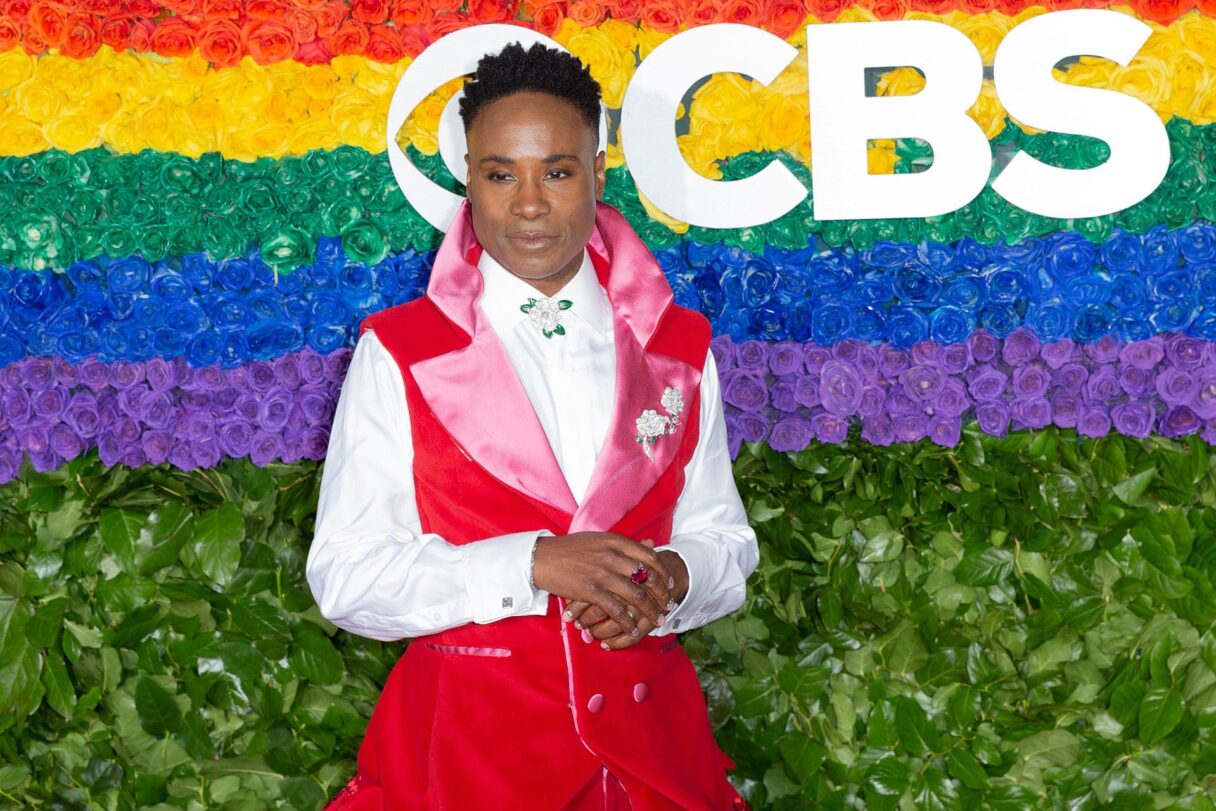
Since July 2023, actors belonging to the union (the Screen Actors Guild – American Federation of Television and Radio Artists) have been striking for better wages, working conditions and protection from the use of artificial intelligence. Their walkout has coincided with industrial action taken by the WGA (Writers Guild of America). It is the first time that both actors and writers have gone on strike simultaneously since 1960.
It is unclear what effect these strikes will have on the industry in the long term but, as of the date of publishing, neither side is backing down – and Porter is characteristically candid about his reasons for supporting the walkout.
“Bob Iger [the Chief Executive Officer of The Walt Disney Company] flies his private plane to a billionaire's retreat, gets on television and says that our demands for a fair wage are unrealistic. He makes $78,000 a day and my residual check says six cents. F**k you! I’ve had to sell my house because I don’t know where my next paycheque is coming from. I am one award away from an EGOT [the achievement of having won all four of the major American entertainment awards – an Emmy, a Grammy, an Oscar and a Tony] and I still live cheque to cheque. I haven’t made any money yet because they don’t pay me residuals.
“I hope this strike reminds these executives, who run studios without a creative bone in their body, that they can’t do this without us. You can’t do a thing without us and you treat us like we don’t matter.
“Well, we do.”
Black Mona Lisa will be released in January 2024 via Island/Republic
Read more: Simu Liu and Issa Rae on why Barbie is a win for diversity


